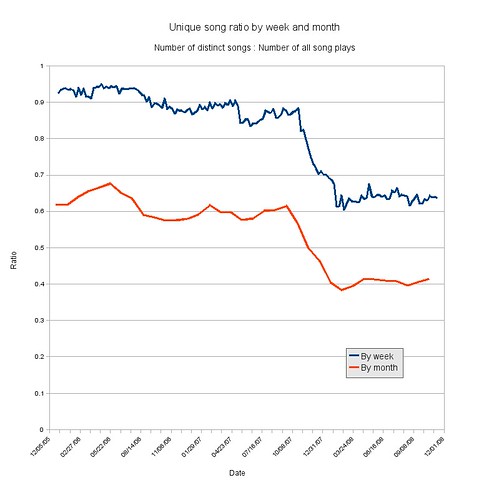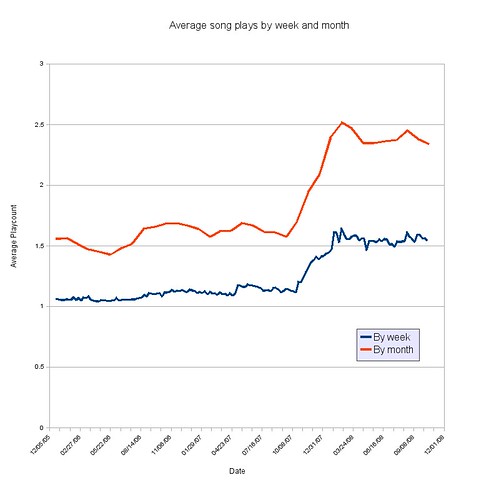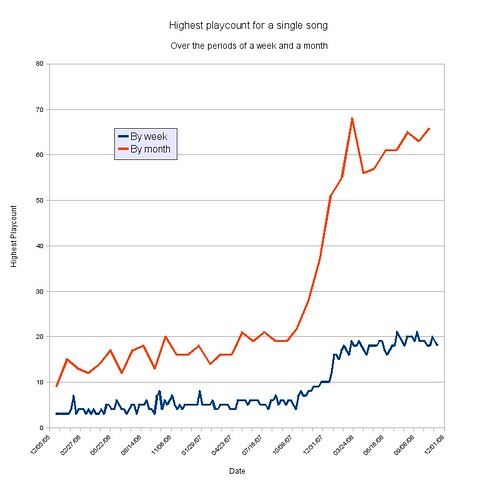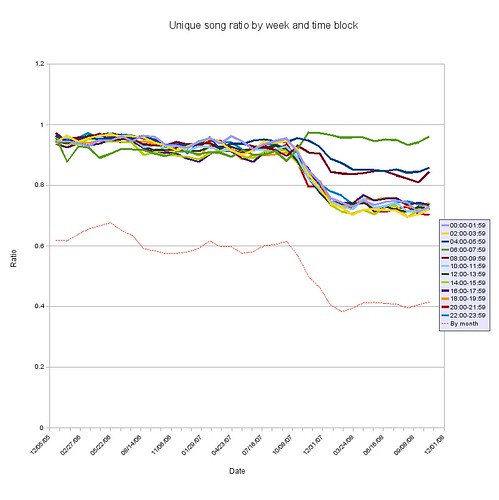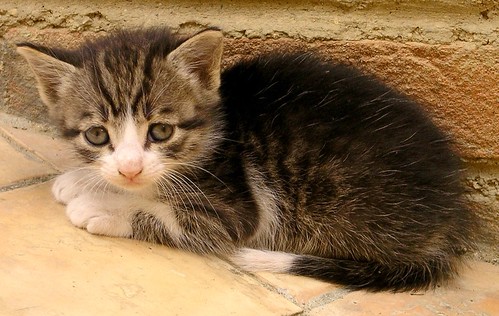"Global warming?" I hear you ask. "Why bother? The scientific community has
already delivered a verdict." Well, yeah. But big names like George Will are still churning out the occasional piece on how
global warming doesn't exist, and while they generally get
slammed in certain online circles, the big names aren't losing their jobs. This suggests that a significant portion of the population still likes hearing about how
the sea ice is totally not melting at all.
And there is one facet to the global-warming-doesn't-exist camp that I acknowledge as having some merit. This is the argument that we humans don't know
shit. Despite all our
jetpacks and
holograms, there are still a lot of things we don't understand, and how the climate works is by and large one of those things. Meteorology is hard, and you don't have to go farther than the local news to see how poorly we have mastered it. So yeah, the planet's been a bit uncomfortably warm lately, and we're kinda thinking maybe it has something to do with us, but we don't
know that. We can't
prove it. We can't even prove that
cigarettes cause cancer, so of course we can't prove that our dirty habits are causing the North Pole to become the world's biggest EZ-Bake oven.
Take one step more moderate, and you can claim that we don't know what course global warming will take. This is hard to argue against because, well, we don't. Maybe things will level off again and we'll only lose Florida. Maybe
the Great Filter will turn out to be something totally unrelated that wipes the floor with us long before we get too warm. Maybe Xenu just bumped into the thermostat dial on his way to the office and is gonna straighten things out as soon as he gets home.
What I'd like to do is advance an argument that doesn't demand wholesale acceptance of global warming. Leave facts and statistics out of it, since there's not much we truly know on the subject. All I ask is that you acknowledge that global warming, in the human-created worldwide-catastrophe sense, is a possibility. The "we don't know" argument works both ways, so it's certainly conceivable that the pinkos are right and we're on the first SUV to Sweatyville, right?
This is where Pascal comes into play. You've probably come across
his triangle at some point or another. But never fear, we're not doing math today. Pascal was a well-rounded dude, so besides being a skilled mathematician, he was a bit of a famous philosopher too. He's best known for a theological argument that has since become known as
Pascal's Wager. To make short work of it (the hardcore philosophers out there are already wincing), Pascal reasoned as follows:
We don't really know if God exists. But if he does, the stakes are high (eternal life, Hell, all that jazz). And if he doesn't, the believers aren't any worse off than the non-believers - we all cease to exist in the same way. So it's a good gamble to be pious regardless of any proof of God's existence.
I'm not so sure that Pascal's claims of no cost were true - I would argue that the effort of regular church attendance is a cost, not to mention possible financial losses from behaving like a pious Christian rather than an opportunistic capitalist. And since Pascal probably wasn't happy with an entirely risk-return based belief - "I accept Jesus into my heart because it makes good economic sense" might not cut it with St. Peter - you'll be needing to convince yourself that you truly believe, which sounds like a lot of
emotion work to me (bam! sociology blindside!). But the reasoning still stands with a non-zero cost - a little bit of piety during one's lifetime doesn't seem like such a sacrifice when compared to an eternity in Hell.
Scott Adams (yes, the author of Dilbert) has taken the wager and run with it in
some interesting directions, including the conclusion that we should become peace-loving Muslims. Of course, I have yet to convert (as does Adams), so maybe it's not as convincing as all that, but it's at least a good read. For me, the interesting next step of Adams' musing is this: Can we apply Pascal's argument to other avenues? I don't see why not.
Pascal's argument is dealing with theoretically infinite values, but I am convinced that humans cannot actually conceive of the infinite (that really
is a topic for another day). My position is that our conception of infinite is the same as our conception of really, really big. I like Adams' framing of the argument in mathematical terms, because I don't think we have to actually hit infinity for the probability to tilt in our favor. Think about the math that considers what happens when a value is infinite, like
limits or
Big O. It's all couched in terms of "as
x approaches infinity" because all we need is for
x to get big enough that the numbers behave in a predictable way. We can't actually model infinity in math, but once we see a definite trend, that last step is easy to infer. This isn't math we're doing here (trust me), but I argue that we can approach it the same way. If a reward is large enough, and the costs small enough, we can apply Pascal's wager to it.
Sure, if you're already being a
pedant about it, I'm bet you could trot out some claims about the types of logic involved. But frankly, if you're using phrases like "epistemic probability," I think you're already missing the point. Pascal's argument is just numbers. Adams gets this, and it's what helps him hit some interesting points without sounding like a pretentious windbag. The strength of the argument lies in pointing out some very big numbers and some not-so-big numbers, and from there any bookie could tell you which horse to bet on.
So, the argument:
If global warming exists, preventing it earns us the reward of continued existence. Worst case scenario: if the Earth keeps warming up, it's going to stop supporting human life sooner or later. We're remarkably fragile creatures, and our technological prowess will only get us so far, especially when we will have to cope with not only climate change but all the
wars, famines, and tempests that spring up as a result. We'll probably snap and bomb each other into oblivion long before the last corn crop fails, but the end result is the same - we cease to exist, Darwin declares us the weakest link and sends us home. The
water bears trundle along happily, and the universe quickly forgets about us.
What are the costs of preventing global warming?
- We might have to start driving cars that get more than 8mpg. Yes, I know you love your Expedition.
- We should probably insulate our houses our houses and use fluorescent bulbs. Quickly recouping your investment in monthly utility savings is a big sacrifice, I'm aware.
- We'll have to research and improve alternative sources of energy. People, we're going to need to do this eventually, because the oil is going to run out, warming or not. I don't see why getting a head start on this is such a bad idea.
The costs come down to this: we'll have to spend some money now. There are some more factors that mitigate this further, especially for Western society - we'll be creating local jobs, we'll be reducing our dependence on other nations, and so on. I'm not qualified to judge the strengths of all these arguments, nor do I feel the need to. I'm satisfied that the costs of reasonable action on this front are not ridiculous or unachievable. We don't have to sacrifice any sons or clean the Augean stables, so I think this is doable.
So in one corner, we have a significant but manageable financial investment. In the other corner, we have the possibility of extinction of the species. Even if this possibility is somewhat remote by your reckoning, it's there, and it's a near-infinite value. Balanced against the low cost, this is a wise investment by the Pascal/Adams metric.
Even if you don't think global warming exists, you should still buy a hybrid. Or, y'know,
bike to work.
